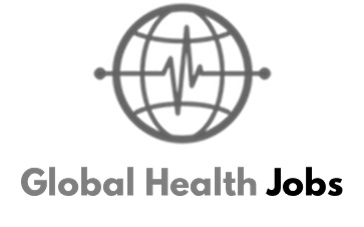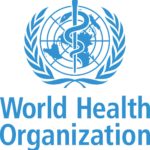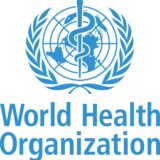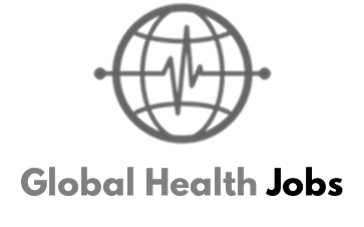Job Posting
: Nov 10, 2021, 3:41:10 AM
Closing Date
: Dec 1, 2021, 4:29:00 AM
Primary Location
: Barbados-Bridgetown
Organization
: PAHO/WHO Representation, Barbados & Eastern Caribbean Countries
Schedule
: Full-time
OBJECTIVE OF THE OFFICE/DEPARTMENT
This requisition is for employment at the Pan American Health Organization (PAHO)/Regional Office of the World Health Organization (WHO)
The PAHO Caribbean Subregional Program (SPD-CRB) is responsible for providing subregional technical cooperation and for strengthening PAHO’s engagement with the Caribbean Subregional integration mechanisms, the Caribbean Community (CARICOM) and its various bodies and organs; and to build synergistic partnerships with the subregional institutions such as the Caribbean Public Health Agency (CARPHA) and the University of the West Indies (UWI), among others. PAHO’s subregional technical cooperation specifically focuses on public health issues which would benefit from economies of scale and for which agreement on proposed collective responses and actions would produce a far greater impact than individual country responses. The Subregional Program also plays a role in coordinating technical cooperation among the different PAHO country offices.
The Noncommunicable Diseases and Mental Health (NMH) Department promotes, coordinates, and implements technical cooperation activities, directed at the prevention and control of noncommunicable diseases (NCDs) and related risk factors, mental, neurological and substance abuse disorders and disabilities, promotion of optimal nutrition and road safety, and violence prevention, that are evidence-based and appropriate for the political and sociocultural context in which they are implemented. It raises political and public awareness and understanding of the burden of the most common NCDs and mental disorders, related risk factors and conditions and leads multi-sector and multi-stakeholder strategic and collaborative efforts aimed at strengthening Member States’ capacity to promote and protect health through public policies, programs, and services. This will reduce risks and disease burden and contribute to improving the physical, mental, and social well-being of the population.
DESCRIPTION OF DUTIES
Under the general supervision of the Director, Noncommunicable Diseases and Mental Health (NMH), and the direct supervision of the Subregional Program Director, Caribbean (SPD-CRB), the incumbent is responsible for, but not necessarily limited to, the following assigned duties:
- Advise and provide technical cooperation to the Caribbean Community (including the CARICOM Secretariat and institutions, and Caribbean countries and territories) in the development and/or updating of policies, norms and standards for the implementation of an integrated approach to the prevention and control of NCDs, risk factors and the social determinants of health, including the use of appropriate information and surveillance tools/systems for monitoring and analysis; promote the use of relevant global, regional and national health policies, strategies and programs across the spectrum of health promotion, disease prevention, treatment and management, rehabilitation and palliation, including the effective use of law and regulatory frameworks and the development of economic evidence to support NCD policies and decision-making;
- Advise and contribute to the development and implementation of subregional interventions for the prevention and control of NCDs – principally cardiovascular diseases (CVDs), cancer, diabetes, chronic respiratory diseases and mental health; strengthen capacities of Caribbean institutions, countries and territories to adequately respond to the burden of NCDs within the framework of PAHO’ s NCD prevention and control strategy, the PAHO Strategic Plan, the Sustainable Development Agenda, and the Declaration of Port of Spain;
- Mobilize financial and technical resources in support of the NCD agenda in the Caribbean; actively promote networks, alliances and multi-stakeholder partnerships to address the burden of NCDs, in close coordination and collaboration with the CARICOM Secretariat, CARPHA, and other relevant subregional institutions;
- Advise and provide technical cooperation for the effective integration of NCD considerations and interventions into disaster preparedness and response efforts;
- Advocate for NCDs and mental health to be a key priority in subregional and national political, development, health, economic and trade agendas; promote a health in all policies approach and safeguarding public health from commercial and other vested interests;
- Facilitate the implementation and monitoring of relevant subregional, regional and global strategies adopted by the Governing Bodies of CARICOM, PAHO or WHO;
- Represent the Organization in regional and subregional networks and thematic alliances; facilitate coordination with relevant regional and subregional agencies, academia, centers of excellence and other national and international entities and programs;
- Lead inter-programmatic collaborations to promote the establishment of optimal delivery of NCD care through resilient health systems and services, with emphasis on primary health care and financial protection;
- Promote the implementation of NCD and mental, neurological and substance use disorders (MNS) lessons learned and best practices including the incorporation of management of these conditions into PHC; Utilize information (epidemiological and surveillance data) to assess the impact of interventions and to set programmatic priorities for the Organization;
- Collaborate in the preparation, implementation and evaluation of: the SPD-CRB Biennial Work Plan (BWP); the Subregional Cooperation Strategy; the health agenda of CARICOM; the UN Multi-Country Sustainable Development Framework; and international cooperation;
- Foster networking and cross-fertilization among the subregion; identify and promote potential or actual subregional capacities and opportunities for cooperation among subregions and among the Member States of the subregional processes/entities and their institutions, including Country Cooperation for Health and Development (CCHD), South-South Cooperation (SSC), and Triangular Cooperation (TrC), liaising with CSC, technical entities, development partners, and others as necessary;
- When called upon to directly supervise staff: establish clear work objectives, conduct timely and effective performance appraisals, provide coaching and feedback, and support staff development opportunities;
- Perform other related duties, as assigned.
REQUIRED QUALIFICATIONS
Education:
Essential: A bachelor’s degree in a health or social science related to the functions of the post, and a master’s degree in public health, public policy, public administration or a related field from a recognized university.
In the event that your candidature is retained for an interview, you will be required to provide, in advance, a scanned copy of the degree(s)/diploma(s)/certificate(s) required for this position. WHO, only considers higher educational qualifications obtained from an institution accredited/recognized in the World Higher Education Database (WHED), a list updated by the International Association of Universities (IAU) / United Nations Educational, Scientific and Cultural Organization (UNESCO). The list can be accessed through the link: http://www.whed.net/. PAHO will also use the databases of the Council for Higher Education Accreditation http://www.chea.org and College Navigator, found on the website of the National Centre for Educational Statistics, https://nces.ed.gov/collegenavigator to support the validation process.
Experience:
Essential: Nine years of combined national and international experience in the fields of public health, public policy or socio-economic development, with a primary focus on addressing noncommunicable diseases.
Desirable: Practical experience working in public health projects at the international level in Latin America and the Caribbean.
SKILLS:
PAHO Competencies:
- Overall attitude at work: Maintains integrity and takes a clear ethical approach and stance; demonstrates commitment to the Organization’s mandate and promotes the values of the Organization in daily work and behavior; is accountable for work carried out in line with own role and responsibilities; is respectful towards, and trusted by, colleagues and counterparts.
- Respecting and promoting individual and cultural differences: Relate well to diversity in others and capitalize on such diversity – Relates well to diversity in others and capitalizes on such diversity. Treats all people with dignity and respect. Relates well to people with different cultures, gender, orientations, backgrounds and/or positions; examines own behavior to avoid stereotypical responses; considers issues from the perspective of others and values their diversity.
- Teamwork:Collaborate and cooperate with others – Works collaboratively with team members and counterparts to achieve and build rapport; helps others when asked; accepts joint responsibility for the team’s successes and shortcomings.
- Communication:Write effectively/Share knowledge – Writes down ideas in a clear, structured, logical and credible way; drafts and supports the development of guidelines, policies and procedures. Shares relevant information openly and ensures that the shared information is understood; considers knowledge sharing as a constructive working method and demonstrates awareness of the Organization.
- Producing Results:Work efficiently and independently/Deliver quality results – Monitors own and others’ work in a systematic and effective way, ensuring required resources and outputs. Aligns projects with Organization’s mission and objectives. Consistently solves own and team’s problems effectively as needed. Proactively engages in projects and initiatives, accepting demanding goals, in line with Organizational Strategies and Program of Work. Demonstrates accountability for work of team and sets an example, while explicitly articulating lessons learnt for own and team’s benefit.
- Ensuring effective use of resources:Strategize and set clear objectives/Monitor progress and use resources well – Sets specific, measurable, attainable, realistic and timely objectives for own team and/or the Organization; systematically analyses and anticipates priority projects for own team and allocates necessary resources to achieve them; identifies the cross-Organizational resources needed for large- scale projects in line with key Organizational objectives. Anticipates foreseeable changes and adapts own and team’s projects in the face of unforeseen circumstances and/ or challenges; creates measures and criteria to monitor progress of overall projects against key Organizational objectives; creates cost-effective solutions for the Organization.
- Building and promoting partnerships across the Organization and beyond: Develop networks and partnerships and encourage collaboration – Builds and negotiates strategic partnerships and alliances with a wide range of key stakeholders to ensure Organizational results and success. Creates innovative opportunities for promoting synergies inside and outside the Organization to improve Organizational success.
Technical Expertise:
- Technical expertise in the areas of noncommunicable diseases (NCDs) and mental health (MH), including theoretical and practical knowledge of NCD Risk Factors and Substance Abuse.
- Technical cooperation expertise in national and international health development programs.
- Knowledge of epidemiological and public health management principles; including cultural components for successful planning, implementation and evaluation of noncommunicable disease control programs, including the use of multi-sectoral approaches and broad partnerships.
- Mature judgment; strong analytical, conceptual and project development skills; demonstrated ability to assess, analyze, synthesize and provide recommendations on key programmatic issues related to NCDs.
- Ability to integrate managerial and technical inputs into recommendations for decision-making processes; ability to manage multiple issues and tasks in a complex organizational environment.
- Ability to create and advocate innovative approaches to facilitate and enhance technical cooperation in health, as well as monitoring of these processes.
- Practical knowledge of results-based management concepts and tools as applied to development projects, especially related to situation analysis, outcome and output formulation, and indicator development.
- Excellent organizational and analytical skills combined with strong professional oral and writing skills including the development of reports, oral presentations, and summary documents for consideration at the highest levels of the Organization and beyond.
Languages:
Essential: Very good knowledge of English with a working knowledge of either Spanish or French.
IT Skills:
Demonstrated ability to effectively use a computer and utilize software programs such as Microsoft Office Word, Excel, PowerPoint, SharePoint and Outlook. Other IT skills and knowledge of other software programs such as MS Project would be an asset.
REMUNERATION
Annual Salary: (Net of taxes)
US $74,913.00 + post adjustment
Post Adjustment:56.6% of the above figure(s). This percentage is to be considered as indicative since variations may occur each month either upwards or downwards due to currency exchange rate fluctuations or inflation.
ADDITIONAL INFORMATION
This vacancy notice may be used to fill other similar positions at the same grade level.
Any appointment/extension of appointment is subject to PAHO Staff Regulations, Staff Rules and e-Manual.
For information on PAHO please visit: http://www.paho.org
PAHO/WHO is committed to workforce diversity.
PAHO/WHO has a smoke-free environment and does not recruit smokers or users of any form of tobacco.
PAHO/WHO offers an attractive compensation package including an annual net salary and post adjustment, which reflects the cost of living in a particular duty station and exchange rates (subject to mandatory deductions for pension contributions and health insurance). Other benefits include: 30 days annual leave, dependency benefits, pension plan and health insurance scheme. Benefits for internationally recruited staff may include home leave, travel and removal expenses on appointment and separation, education grant for dependent children, assignment grant and rental subsidy.
Candidates appointed to an international post with PAHO are subject to mobility and may be assigned to any activity or duty station of the Organization throughout the world.
All applicants are required to complete an on-line profile to be considered for this post.
Candidates will be contacted only if they are under serious consideration. A written test and/or interview will be held for this post. The post description is the official documentation for organization purposes.
More Information
- $ Salary Offer POA




